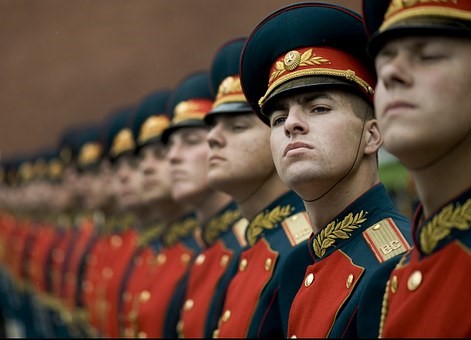Commander Sergei Postnov’s name may not be familiar to those outside of his immediate family and fellow soldiers but, in Russian history he will be remembered as the 53rd Russian colonel killed in Putin’s war in Ukraine. His death is in addition to those of at least 11 Russian generals and over 30,000 soldiers of lower ranks. Putin’s “special military operation” is taking a personal toll not only on the Russian people but it also is having a devastating impact on the population of Ukraine. The demographic news for the country is not positive. Over the last 30 years Ukraine’s population declined by approximately 19%. The war this year has accelerated those numbers with the loss of soldiers and the millions who have emigrated to escape the Russian invasion. The death rate is rising and the birthrate is decreasing in the worn-tern country. Russian, Ukrainian, and western demographers are in agreement that Ukraine is facing a full demographic collapse within the next 80 years. A population of 53 million (1993) is expected to drop to as low as 30 million by 2030 and 22 million by 2100.
Ella Libanova, director of the Institute of Demography and Social Research at Ukraine’s National Academy of Sciences and a leading demographer on this issue, argues that a combination of factors led by Putin’s war will impact the social and political atmosphere in the country for decades, including Kyiv’s ability to raise future armies. Libanova points out that “the war has inflicted a crushing blow on Ukrainian demography. In addition to military losses, the total number of which is still unknown, no fewer than 4,000 civilians have died and approximately 5 million have saved themselves from death by fleeing abroad. Some of these people have already rooted themselves in other countries and will not return home. There are too few young men, too small a tax base to rebuild, and without massive support from abroad no way to revive the country. With women of child-bearing age permanently fleeing the region, no post-war baby boom is expected in Ukraine.
Putin has bombed hospitals, schools, and other public facilities needed to maintain a semblance of life in Ukraine. Health care will continue to deteriorate for those who return and attempt to rebuild lives in an environment of extreme stress. These are not even the worst factors. Putin’s war has sent millions of educated and young Ukrainians fleeing to other parts of Europe and beyond in search of safety and social programs for their families. With nothing left to go back to they will end up permanently rebuilding their lives elsewhere. Eventually their men will join them making a return to Ukraine even less likely. “The key takeaway from her observations and those of other demographers is this: Vladimir Putin has inflicted even more terrible losses on the Ukrainian population than war-time casualties and structural damage. And these losses will cast a horrific shadow on Ukraine not only in the immediate future but for as far ahead as anyone can project,” according to Paul Goble of the Jamestown Foundation.
Russia’s population also is falling, making a win in Ukraine for Putin even more critical. There were 148.2 million Russians when the Soviet Union fell in 1991. By the end of last year the number had decreased to 146.1 million and is expected to drop to as low as 130 million by 2050, according to the Russian statistical agency Rosstat. French demographer Laurent Chalard says Putin is obsessed with the demographic numbers. It may be part of why he has forcibly removed many young Ukrainians and resettled them inside Russian territory. In January 2020 Putin called Russia’s demographic challenge a “historic” crisis. By gaining control over a population with characteristics similar to those of the Russian population, he may be trying to avert a demographic collapse of his country. Alexey Raksha, a Russian demographer living in Moscow, predicts a sharp drop in childbirth over the coming months as a reaction to the war in Ukraine and the economic crisis linked to the sanctions. “During economic crises, people are less inclined to have children, which is logical,” he explains to a France 24 reporter. “Trust in the future plays a key role in a country’s birth rate.”
According to Rosstat, Russia already is experiencing a 5% drop in births in the first quarter of this year compared to the same period in 2021. “I think that everything will depend on who wins the war,” notes Chalard. “If Russia wins, the resulting joy could lead to a boom in births. But losing and getting bogged down in an economic crisis will have the opposite effect,” he says. “What is certain is that Putin has his back against the wall. From a demographic point of view, he has no other choice but to win.” Unfortunately, it appears that no matter who wins Russia’s “special military operation,” Ukrainian society will lose the war.
Daria Novak served in the U.S. State Dept.
Photo: Pixabay
